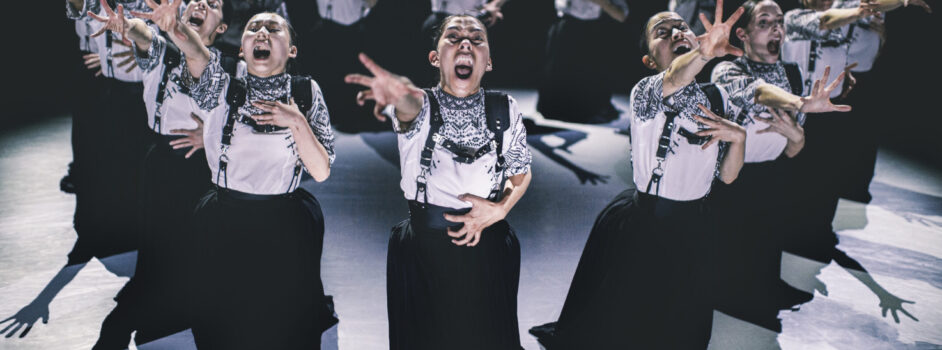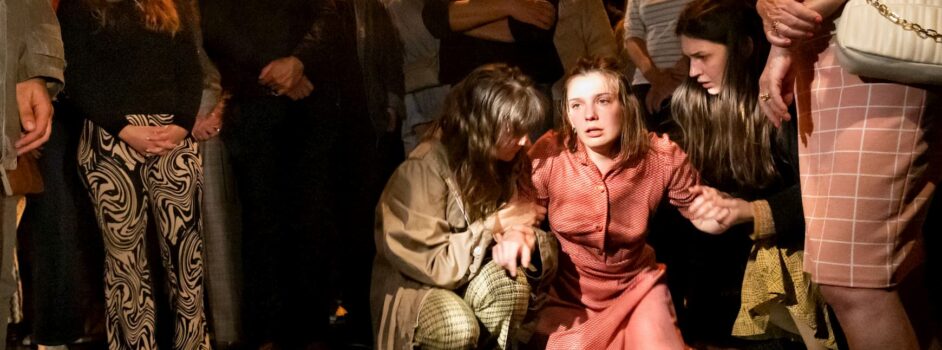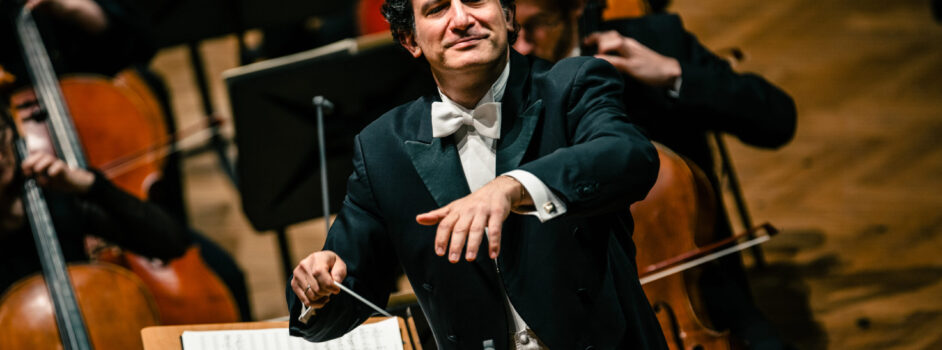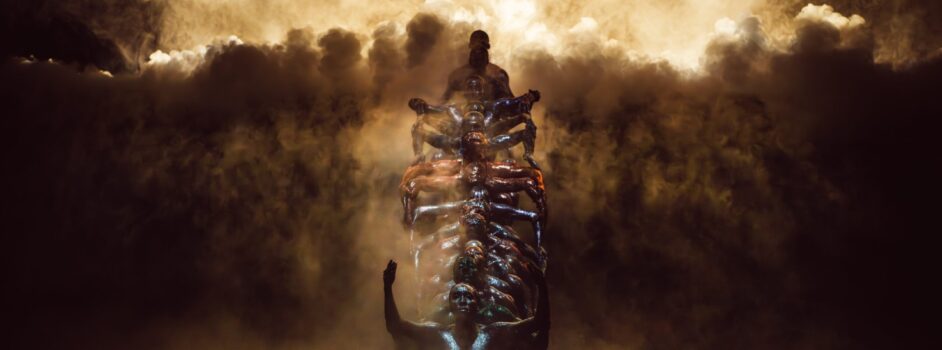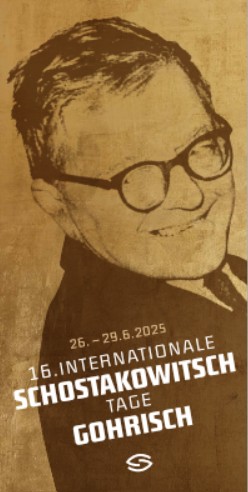Plus de détails
Milan. Auditorium de Milano. 18-III-2013. Giovanni Gabrieli (1555 – 1612) : Canzon primi toni a 8 et sonate Canzoni et Venezia ; Heinrich Schütz (1585-1672) : Die Himmel die Ehre Gottes erzählen un 6 ; Georg Friedrich Haendel (1685-1759) : Cara Sposa de Rinaldo (version 1711) ; Joseph Haydn (1782-1809) : Concerto pour violoncelle n ° 1 ut majeur (Hob VIIb: 1) ; Erich Korngold (1897-1957) : Concerto pour violon op. 35 ; Aaron Copland (1900-1990) : Concerto pour clarinette ; Richard Wagner (1813-1883)/Franz Liszt (1811-1886) : Mort d’Isolde ; Sergueï Rachmaninov (1873-1946) : Concerto pour piano n ° 2 en ut mineur, op. 18 ; Stanisław Moniuszko (1819-1872) :Aria de Stanislaw Marcin & Discours de Pakula ; Igor Stravinsky (1882-1971) : l’Oiseau de feu ; Giuseppe Verdi (1813-1901) : La Forza del destino, ouverture. Les Cornets Noirs (Gebhard David, cornet à bouquin, Bork-Frithjof Smith, cornet à bouquin, Cosimo Stawiarski, violon, Johannes Frisch, violon, Henning Wiegräbe, trombone, Eckart Wiegräbe, trombone, Detlef Reimers, trombone, Michael Hufnagel, trombone, Johannes Strobl, orgue). Valer Sabadus, contre-ténor ; laVerdi Barocca ; direction : Ruben Jais ; Nicolas Altstaedt, violoncelle ; Carolin Widmann, violon ; Laura Ruiz Ferreres, clarinette ; Aldo Ciccolini et Alessandro Mazzamuto, piano ; Skrla Leszek, baryton ; Orchestre laVerdi, Dimitri Kitaenko et John Axelrod
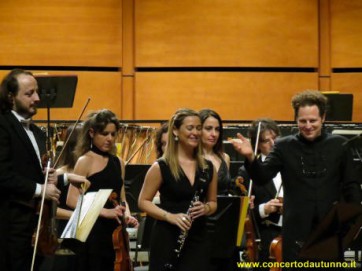 This year's annual gala of the International Classical Music Awards was held at the Milan Auditorium, where the laureates were treated to an enjoyable evening of music. The Symphony Orchestra of Milan Giuseppe Verdi, which was founded in 1993, has become one of the greatest symphonic ensembles in Europe under the baton of Riccardo Chailly and others. In addition to the symphonic orchestra, LaVerdi has broadened its range of activities over the years: it now includes a choir, a baroque orchestra and an amateur orchestra, which allow for a wide array of concerts. The Chinese conductor Xian Zhang is the ensemble's director, and John Axelrod is the orchestra's first guest conductor. For this gala, the latter undertook most of the conducting.
This year's annual gala of the International Classical Music Awards was held at the Milan Auditorium, where the laureates were treated to an enjoyable evening of music. The Symphony Orchestra of Milan Giuseppe Verdi, which was founded in 1993, has become one of the greatest symphonic ensembles in Europe under the baton of Riccardo Chailly and others. In addition to the symphonic orchestra, LaVerdi has broadened its range of activities over the years: it now includes a choir, a baroque orchestra and an amateur orchestra, which allow for a wide array of concerts. The Chinese conductor Xian Zhang is the ensemble's director, and John Axelrod is the orchestra's first guest conductor. For this gala, the latter undertook most of the conducting.
The programme proposed a great overview of music, from the Baroque to the twentieth century, a reflection of the diversity of the jury's choice of recordings. As an opening, Les Cornets Noirs tackled works of Gabrielli and Schütz. Then, they passed the torch to one of the young artists of the year, the countertenor Valer Barn-Sabadus, in an extract from Haendel's Rinaldo, accompanied by LaVerdi's Baroque orchestra conducted by Ruben Jais. The audience was charmed by the artist's crystalline tone and sensitive musicality. The ICMA artist of the year, Carolin Widmann, showed both self-confidence and a high level view in the first movement of Korngold's violin concerto. John Axelrod and the LaVerdi brought out the shining luxuriance of the orchestration. The young Spanish clarinettist Laura Ruiz Ferreres tackled Copland's concerto. The challenges of the work's spectacular solo part were transcended by the young artist, whose interpretation showed very subtle dynamics and a great variety of colors.
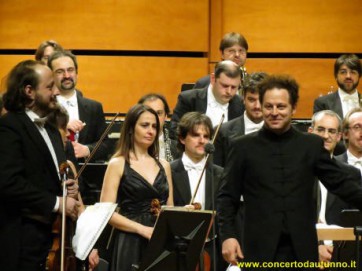 After the intermission, Aldo Ciccolini, who received an award for his career, performed Liszt's transcription of Wagner's “Death of Isolde.” The rigorous construction and the simple emotions of his very poetic interpretation met with a standing ovation. Another great moment was Russian Dimitri Kitaenko's conducting of two extracts from The Firebird. He expanded Stravinsky's prism of colors through a gestural language without adding anything superfluous. Then, John Axelrod and the orchestra gave a breezy account of Rachmaninov's Piano Concerto no. 2, two arias by Moniuszko, and ended on a high note with the overture from Verdi's La Forza del Destino.
After the intermission, Aldo Ciccolini, who received an award for his career, performed Liszt's transcription of Wagner's “Death of Isolde.” The rigorous construction and the simple emotions of his very poetic interpretation met with a standing ovation. Another great moment was Russian Dimitri Kitaenko's conducting of two extracts from The Firebird. He expanded Stravinsky's prism of colors through a gestural language without adding anything superfluous. Then, John Axelrod and the orchestra gave a breezy account of Rachmaninov's Piano Concerto no. 2, two arias by Moniuszko, and ended on a high note with the overture from Verdi's La Forza del Destino.
Next year, the 2014 gala will be held in Warsaw, as part of Beethoven Festival there. On 12 April 2014, José Maria Florêncio will conduct the Sinfonia Juventus orchestra.
Plus de détails
Milan. Auditorium de Milano. 18-III-2013. Giovanni Gabrieli (1555 – 1612) : Canzon primi toni a 8 et sonate Canzoni et Venezia ; Heinrich Schütz (1585-1672) : Die Himmel die Ehre Gottes erzählen un 6 ; Georg Friedrich Haendel (1685-1759) : Cara Sposa de Rinaldo (version 1711) ; Joseph Haydn (1782-1809) : Concerto pour violoncelle n ° 1 ut majeur (Hob VIIb: 1) ; Erich Korngold (1897-1957) : Concerto pour violon op. 35 ; Aaron Copland (1900-1990) : Concerto pour clarinette ; Richard Wagner (1813-1883)/Franz Liszt (1811-1886) : Mort d’Isolde ; Sergueï Rachmaninov (1873-1946) : Concerto pour piano n ° 2 en ut mineur, op. 18 ; Stanisław Moniuszko (1819-1872) :Aria de Stanislaw Marcin & Discours de Pakula ; Igor Stravinsky (1882-1971) : l’Oiseau de feu ; Giuseppe Verdi (1813-1901) : La Forza del destino, ouverture. Les Cornets Noirs (Gebhard David, cornet à bouquin, Bork-Frithjof Smith, cornet à bouquin, Cosimo Stawiarski, violon, Johannes Frisch, violon, Henning Wiegräbe, trombone, Eckart Wiegräbe, trombone, Detlef Reimers, trombone, Michael Hufnagel, trombone, Johannes Strobl, orgue). Valer Sabadus, contre-ténor ; laVerdi Barocca ; direction : Ruben Jais ; Nicolas Altstaedt, violoncelle ; Carolin Widmann, violon ; Laura Ruiz Ferreres, clarinette ; Aldo Ciccolini et Alessandro Mazzamuto, piano ; Skrla Leszek, baryton ; Orchestre laVerdi, Dimitri Kitaenko et John Axelrod

